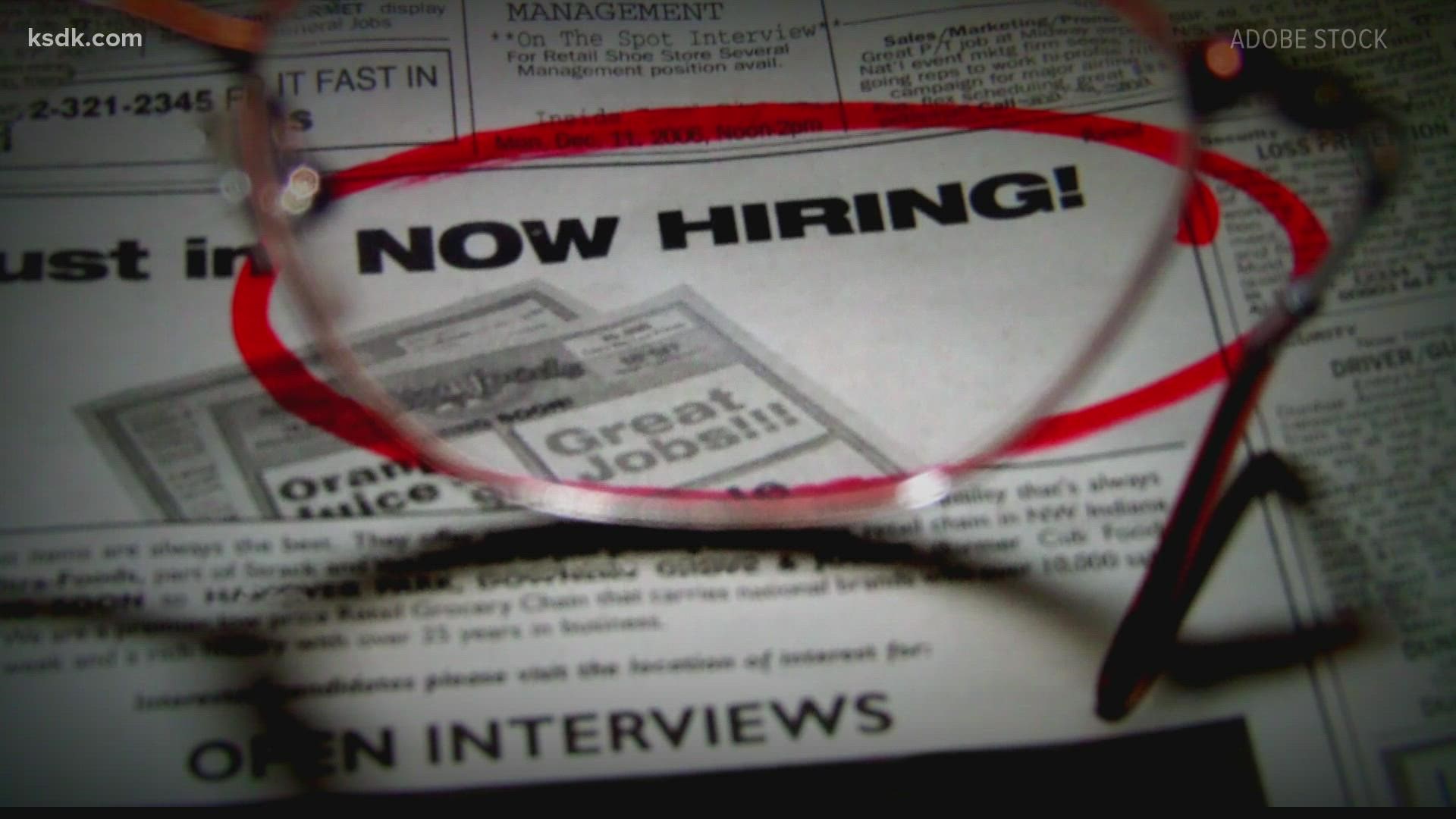ST. LOUIS — With federal unemployment benefits now ended, thousands of Americans are looking for work online.
Some will find jobs, others will lose thousands of dollars to scammers.
How to tell the real jobs from the fake
After 39 years as a nurse, Elena Phelps decided 2020 was her year to hang up her scrubs and retire. The Belleville native says she’d seen it all by then.
“I have already been through plague. HIV, when it first came out i was there. The put us in Hazmat suits. Ebola,” said Phelps.
Phelps said her retirement was going great, until she realized she, “Went through all of my retirement funds and I thought, ‘I need more money’.”
Phelps began searching for a job online. She was about to fall victim to one of the riskiest, fastest growing scams out there.
Online Job Scams Skyrocket
“Complaints are up like 27% over the past two years,” said Steve Baker with the St. Louis Better Business Bureau.
According to the BBB, Americans are losing $2 billion dollars every year to online job scams.
“People think these are rare, and there will be easy to detect. They're not. They're very sophisticated criminal gangs that are running these things,” said Baker.
Anatomy of a scam
Scammers post 'work from home' job listings on job boards and sites like craigslist and indeed.com.
It turns out, what you think is a real job, may actually make you a middle man for a criminal organization.
“There are reshipping scams. So if somebody has stolen credit cards overseas or for sale on the dark web, how do they turn those into money? What they do is they place an order from American retailer. They have them [ship purchases] to somebody they hire online to be some sort of distribution agent. They put [purchases] in a new box and send them off to Moscow or the suburbs or wherever,” said Baker. “After people have done this work, [scammers] never pay them.”
Don't trust checks
Surprisingly, in this digital age, a lot of online job scams also involve paper checks.
Baker said these types of scam job listings are sometimes advertised as Secret Shopper jobs, or car wrapping opportunities.
In February, Phelps came across a job that offered her $400 to have her car wrapped in an advertisement.
“It was called Pay to Drive, and they said they would put a car wrap around your car. All you have to do is drive,” said Phelps.
Phelps remembers the company had a professional website. She was quickly sent a $1,900 check to deposit into her account. Phelps recalls being hounded via text by representatives for the company. They wanted her to deposit the check immediately. She could keep some, but had to CashApp the rest to a third party for “supplies”.
Phelps reluctantly followed orders. She said she felt something was off, but didn’t follow her instinct. A few days later, she got some bad news from her bank.
“My bank denied that check and they took $1,997.97 from my account. I feel like I've been robbed,” said Phelps. “I lost a lot of money that I really need it.”
Phelps never got an explanation from the company. They soon stopped returning her messages.
“No legitimate business sends people that check in advance and ask them to pay a third party,” said Baker.
Looking back, Phelps sees the signs she missed. She was hired on the spot. And all communications were done via email or text.
"People need to complain if they've been ripped off by one of these things. We know that over 90% of victims never complained to the better business bureau or law enforcement,” said Baker.
How to avoid online job scams
If you're looking for a job online: always contact the company you're applying with and confirm they are the ones hiring.
Be careful where you post your resume and contact information. According to the BBB, up to 25% of job scam victims included their social security number on their resume.
“You need to be really careful, because those resumes can be a treasure trove for identity thieves,” said Baker, who advises caution for anyone posting their resume to a job board.
Some job search websites have privacy settings so you can control who gets access to your personal information.
Don't let a nice looking website fool you either. Phelps says after she deposited that check, the company website she was so impressed with disappeared.
You can also check out businesses through the Better Business Bureau before applying.
You should also consider doing a google search with the name of the company you’re interested in and the word “scam” to see if there are any reports of suspicious activity.
You can find more tips on how to avoid online job scams by clicking here.

